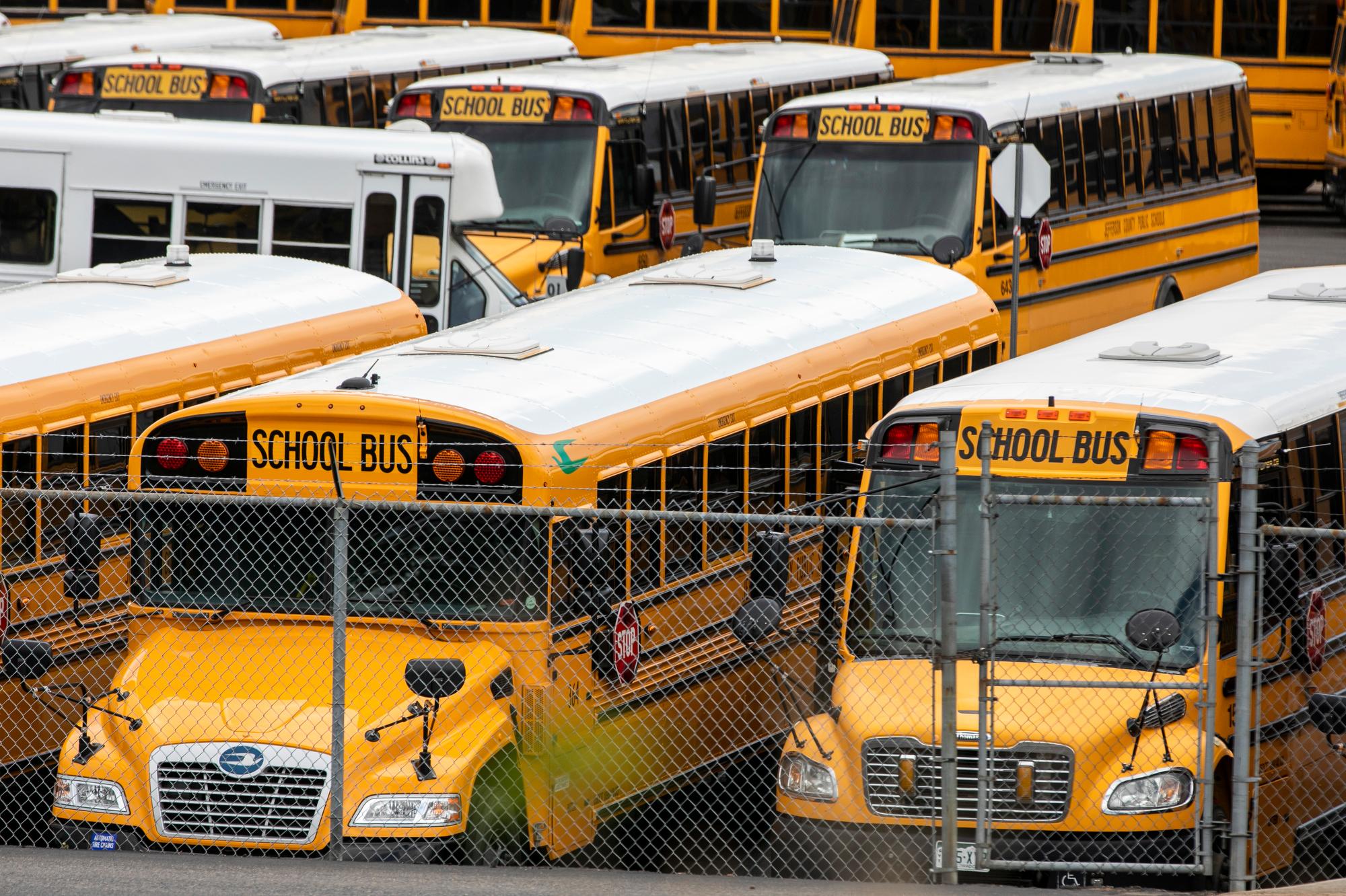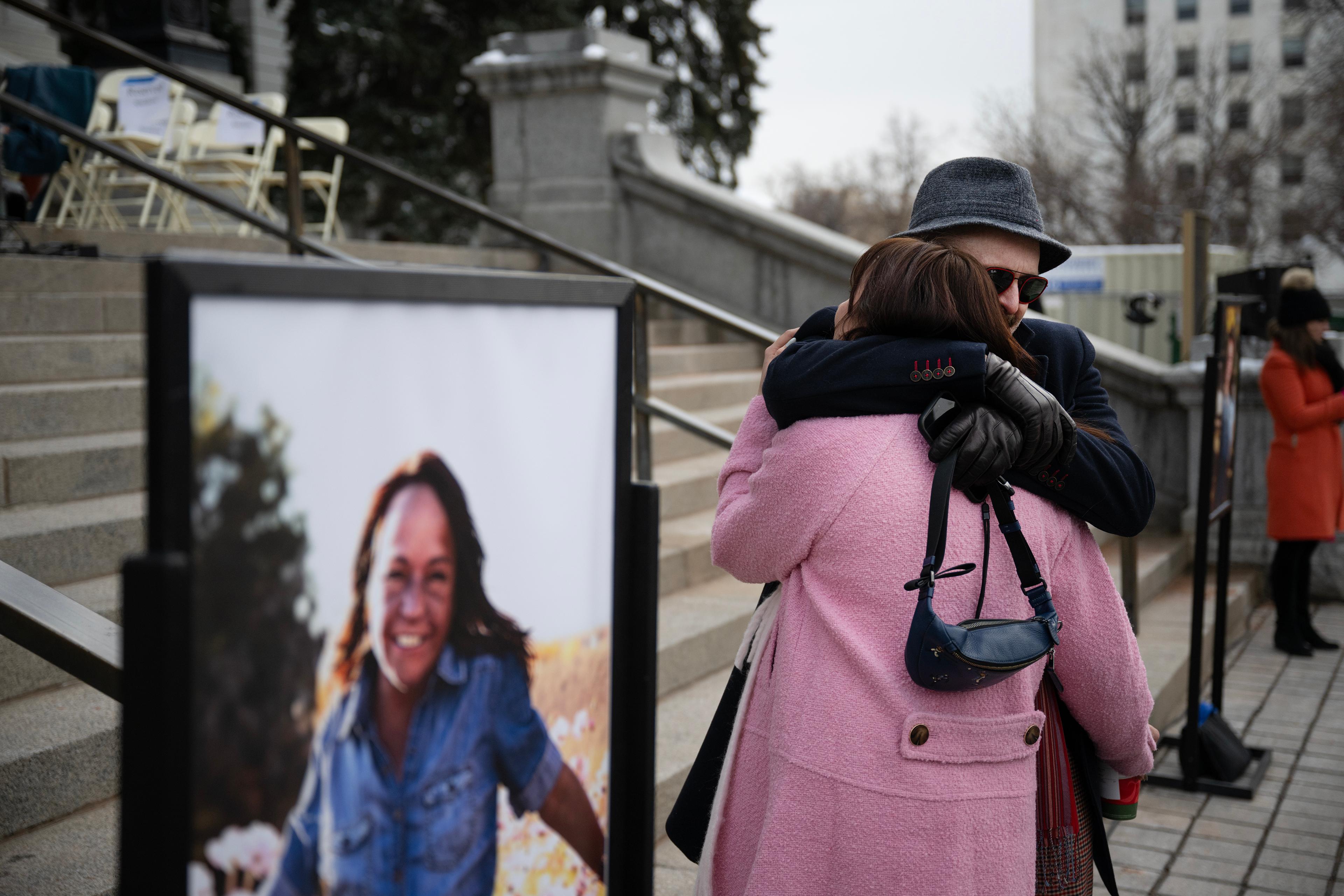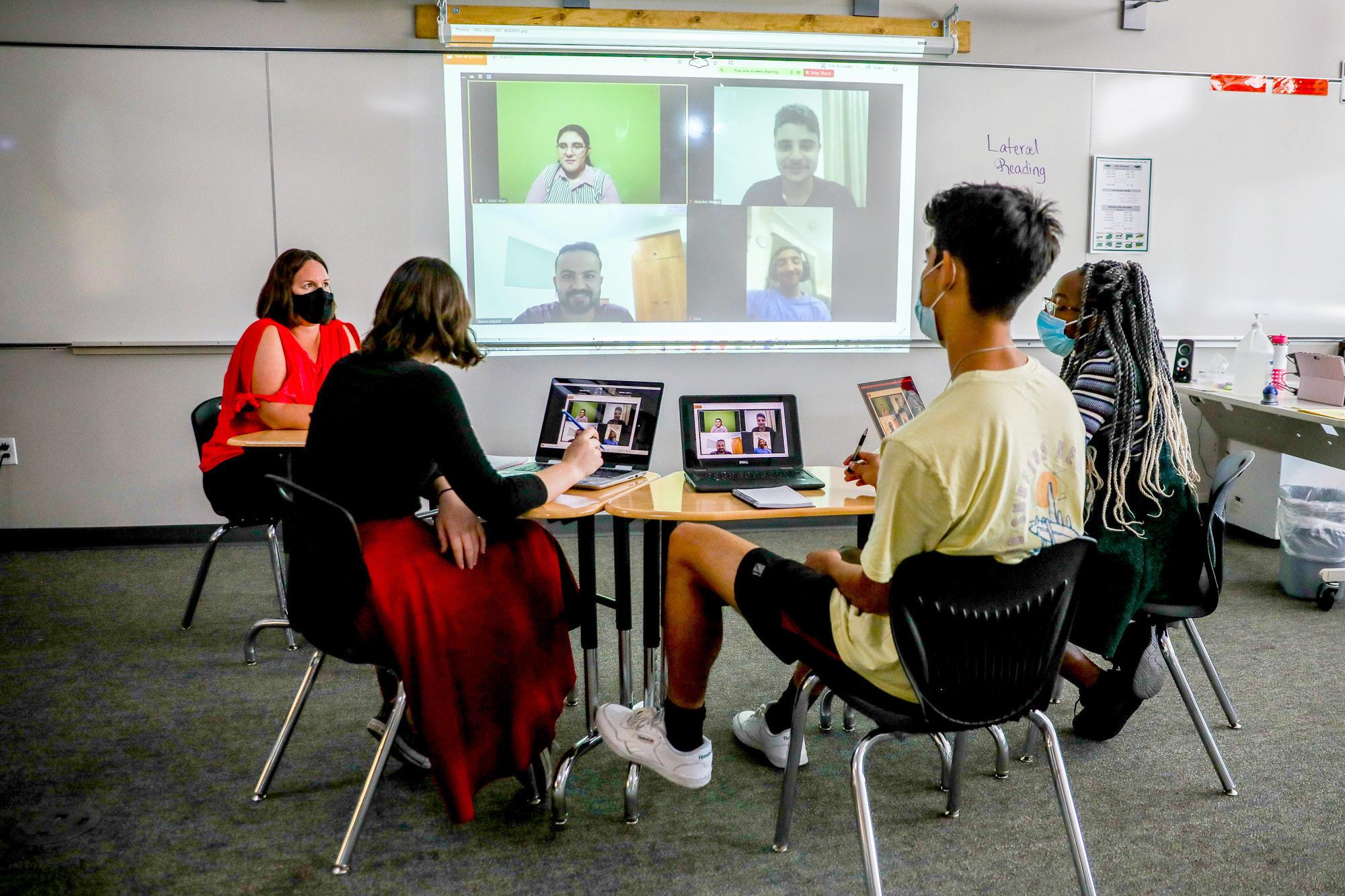
The students in Tina Matthew’s third period human geography class at Clear Creek High School in Evergreen aren’t listening to her. They’re listening to a teenager 5,000 miles away.
“The problem is we don’t have a balanced and fair distribution of food in the world,” said Reda Issami, 15, who is talking to the Evergreen students via Zoom from Morocco about how to reduce food waste at restaurants. “Throwing away food is like stealing from the table of those who are poor and hungry. There is also a strong link between food waste and climate change.”
“Good,” said his Moroccan teacher. “American team?”
Student Max Menard follows Reda, talking about how restaurants can donate unused food to the Food Bank of the Rockies, and how other food waste can be turned into soil.
The two teens on a binational team are practicing their final video presentation for the World Affairs Challenge Virtual Exchange, a project of the nonprofit WorldDenver. It connects high school students around the world to collaboratively develop solutions to local problems related to the UN Sustainable Development Goals.
It is a 10-week, facilitated, virtual exchange program that involves connecting youth ages 14-17 in Colorado with those in the Middle East and North Africa. WorldDenver received funding from the Stevens Initiative, which pays tribute to the legacy of Ambassador Chris Stevens who was killed in Benghazi, Libya, in September 2012. The initiative is sponsored by the U.S. Department of State, the Bezos Family Foundation and the governments of Morocco and the United Arab Emirates. It is administered by the Aspen Institute.
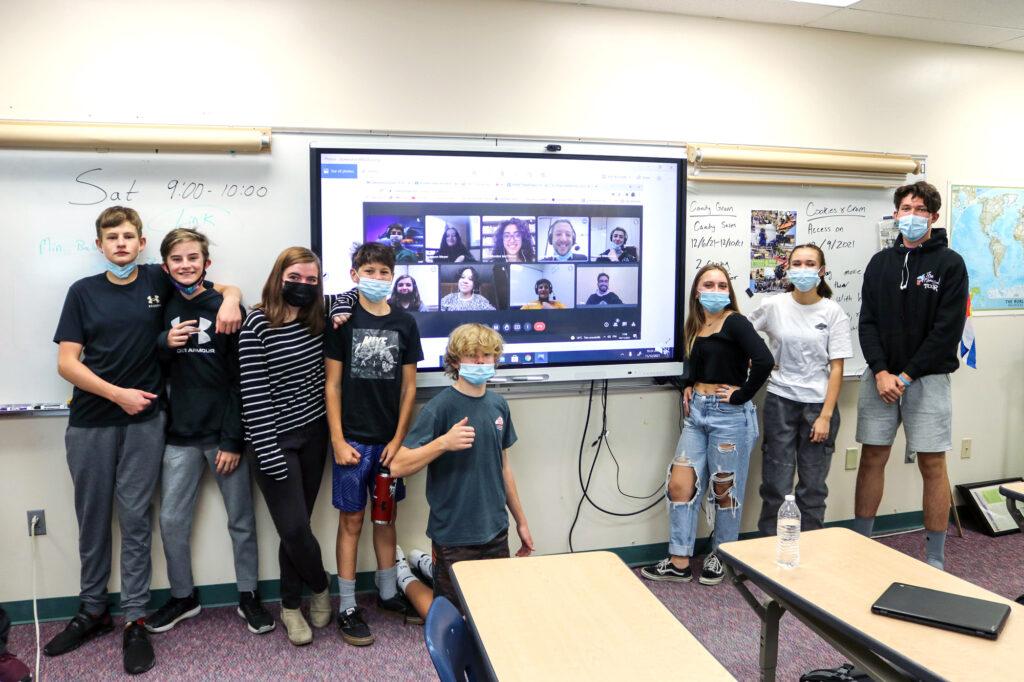
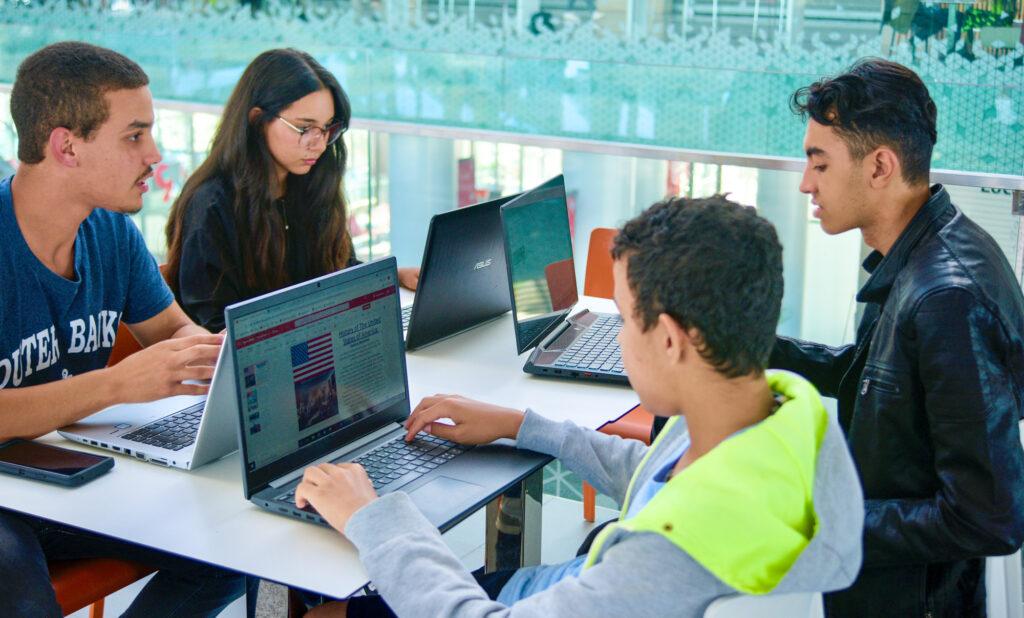
“The overarching goal is to create mutual understanding between students on one side of the world and students on the other side of the world,” said WorldDenver’s Matt Britton.
Students choose from some of the UN’s broader sustainability goals like responsible consumption and production, climate action, life below water, and life on land. They research the problem, work with nonprofits on solutions and can apply for grants to work on service projects on the ground.
“They get to see how other countries approach problems,” said Britton. “It’s really an eye-opening experience for them to be able to interact with each other face-to-face rather than through the filter of the media or movies.”
Colorado schools find similarities with their peers elsewhere
The Colorado schools, including DSST Cole and GALS in Denver, Overland High School in Aurora, Clear Creek High in Evergreen, Harrison High in Colorado Springs and Rocky Mountain High School in Fort Collins, were paired with students from Morocco and Iraq. This fall’s Colorado cohort had 45 students; next spring there will be 85.
Clear Creek High’s Collin Hendrickson, 15, said his team chose desertification — brought on by a lack of rainfall — because it’s happening in both countries.
“In Iraq, it makes it so you can’t grow crops, it increases the air temperature, which affects everyone,” he said. “Here in the U.S., specifically in Colorado, it dries out the trees and the plants and increases the fire danger here, which is a big problem.”
The American students couldn’t believe how well the students abroad spoke English.
“Just seeing how well they spoke English as their second language was super awesome,” said Pressley King, 14.
Hendrickson was also struck by the passion and the dedication shown by the Iraqis.
“It wasn’t just ‘do the basics and then move on,’” he said. “It was really diving deep into solving the problem, the research within the problem.”
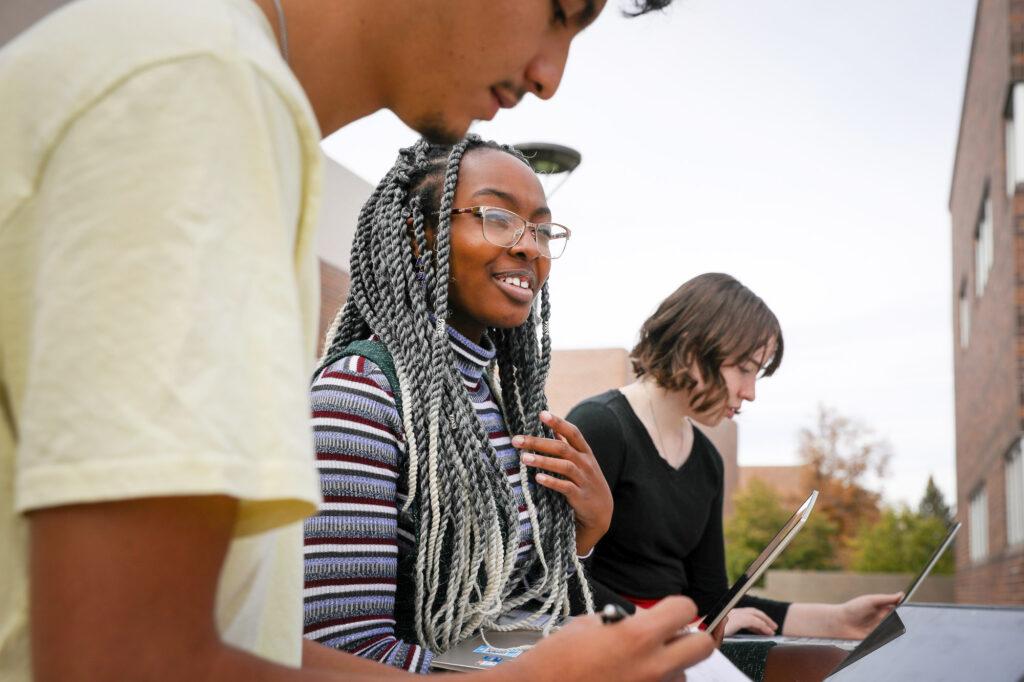
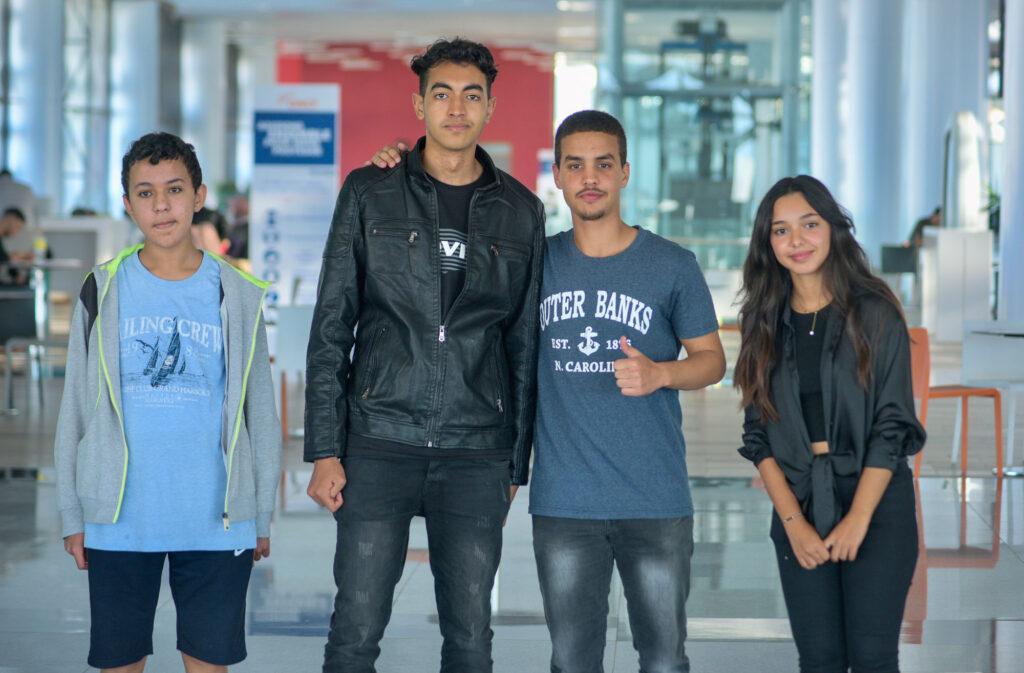
Whereas Collin said he came up with a simplistic solution, the Iraqis broadened his thinking about problem-solving.
“They came with different perspectives and said, ‘What if we actually help replant, what if we reach out to these local organizations, what if we can gather people in our community to help solve this problem?’”
Overland High student Abena Ofori, 17, said she learned to put her whole heart into a project and got better at critical thinking and thinking outside the box. “This project pushed me outside of my comfort zone,” she said.
It wasn’t always smooth sailing. At the outset, Zach Bennetts says teenagers on both sides were just — shy.
“One of our administrators would ask a question and it would just be dead silence for a solid 10 minutes,” he said, his classmates laughing. But by the end of the project, students had amassed plenty of skills.
Students found you can learn a lot about yourself when you’re around people who aren’t like you.
Organizers say some of the skills students learn are leadership skills, geography and science skills, cultural awareness and understanding, research, interviewing, online presentation, project management, and a big one — intercultural adaptability and cross-cultural communication.
There were occasionally misunderstandings. But students had to learn how to overcome them. Pressley King’s group worked on solutions to clean the endangered Iraqi marshes. At one point, the Iraqi team expected more research from the Americans, but instead, the Colorado group had been focused on forging community partnerships.
“They got a little frustrated with us,” King said.
The Iraqi youth were straightforward, more direct, King said. “Like, get to the point, and we kind of,” she paused and laughed, “we’ll, we’ll get there eventually.”
The cultural differences were challenging sometimes, maneuvering time zones, differences when school was opened and closed, and expectations.
“They didn’t really understand that we had to do homework on top of this project along with, like, some of us work on the weekends and do sports.”
But Pressley said with the help of a facilitator, the students began communicating more, responding within 24 hours, posting their work on Google Classroom, and — they selected a team leader. That really helped.
“We learned to keep going, it’ll work itself out,” she said. “Communication really helped us out through that project.”
In fact, the whole experience of working with the Iraqi youth taught 14-year-old Cadence Jennings something about herself.
“I definitely need to work better at communicating what needs to be said. I definitely learned I need to be more blunt like them because sometimes I don’t use my words correctly.
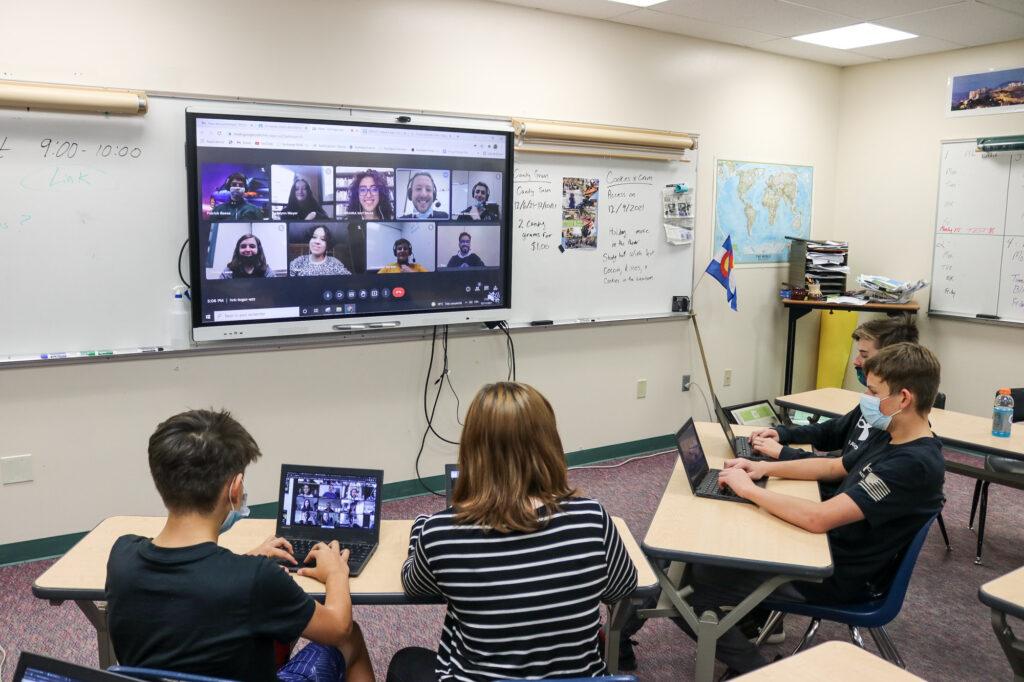
“Good morning to people in Colorado, good afternoon to people in Morocco and good evening in Iraq.”
On Saturday, WorldDenver’s Matt Britton kicked off the final Zoom call where students met with judges from all three countries to talk about their projects.
Judges pressed a group of students from Overland High and Iraq about their project to restore a deforested region of Nepal. They researched slash and burn agriculture, the types of trees that could be replanted, and how to work with community partners on alternatives to cutting trees down like more efficient stoves and alternative grazing methods.
“One of the biggest concerns in our group was ‘Well what’s stopping them from cutting down the trees again,’ and so that’s when we kind of shifted our focus to working more with the native people of the region,” one student told a judge. “If we possibly employ them to protect these trees and plant these trees, the process wouldn’t repeat.”
At the end of the meeting, a winner is declared — a project aimed at cleaning contaminated water in canals in Basra, Iraq.
Overland High social studies teacher Kelly Jones-Wagy said she learned a lot from her students, who chose to focus on something different than what she would have asked them to work on.
“They forged their own path, and I learned a lot.”
She said it can be challenging to give students “real world experiences” because of limitations on time, money or distance, along with all the other responsibilities teachers face.
“To have a program that is fully funded, and helps bridge the distance for students and facilitators, I felt like students were able to get an authentic experience of what it’s like to collaborate with people from another culture and find a way to find common ground,” she said. “This group of students gives me a lot of hope for the future of diplomacy in the world.”
Moroccan Reda Issami, 15, said it was his first cultural exchange and even so, he learned to respect other cultures.
“This was a good experience for me that I learned to understand other cultures even though they are very different from mine.”
Collin Hendrickson, 15, found more similarities than differences, like during ice-breakers where they’d talk about things like how their families celebrated birthdays, “which was a great thing to see first-hand because it totally ends any preexisting stereotypes or misconceptions that you may have about other students around the world,” Hendrickson said. “It really showed me there’s not much difference between us at all.”
“It’s not us versus them, we’re all in this together. We’re all trying to solve this problem as one.”





